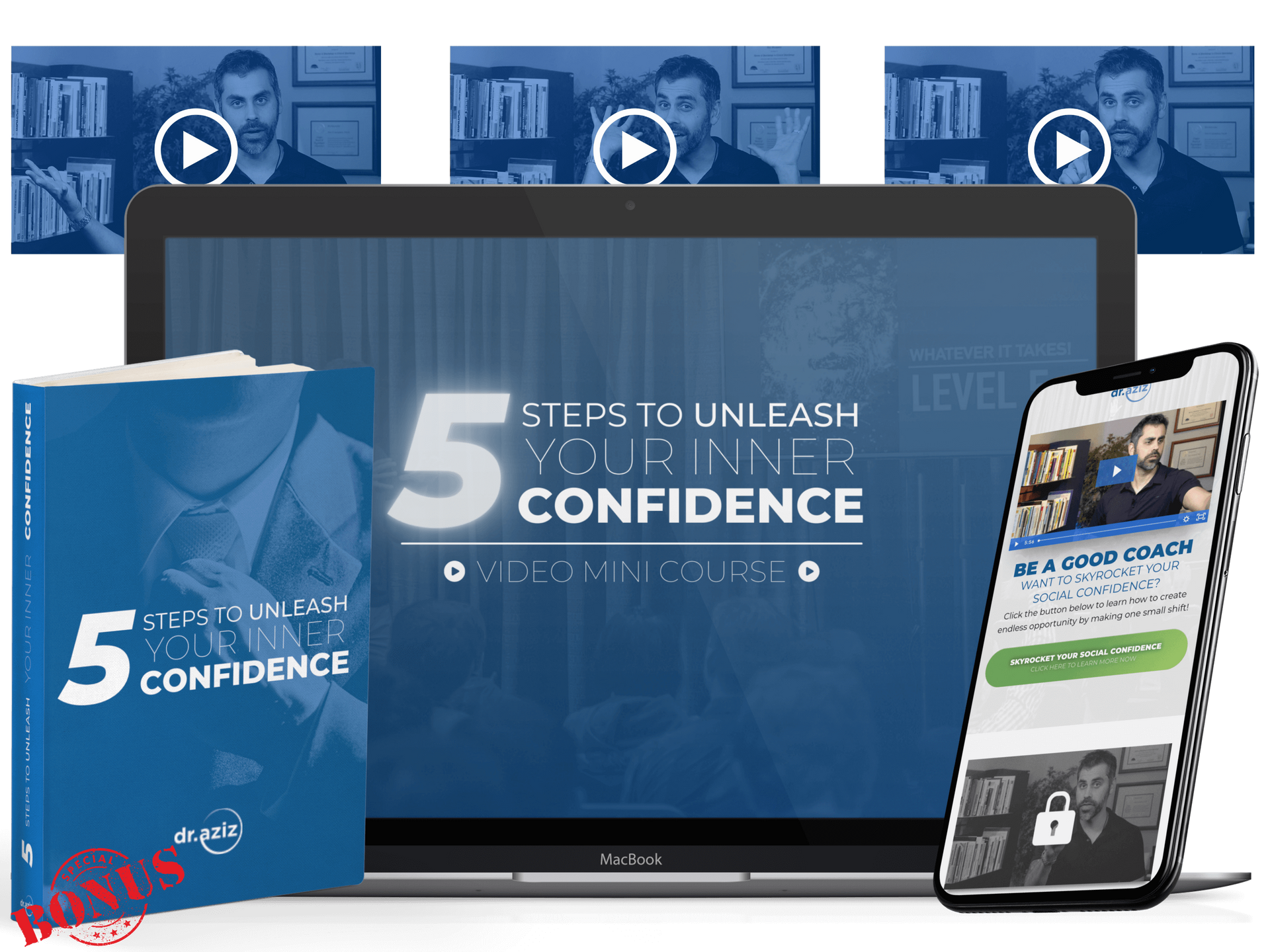How To Stand Up For Yourself Without Being Rude
Aug 28, 2022Are you afraid of conflict?
Do you often deal with guilt about the things you say?
Do you feel constant anxiety about letting your opinions be heard?
If you’re ready to take control of your life and start standing up for yourself—but your efforts are consistently being derailed by the fear that someone might be upset with you for doing so—then you’ve come to the right place. Today, we’re going to be discussing how to speak up when you need to without leaping outside the bounds of human decency or social decorum.
People often think that they can’t be unabashedly honest about their feelings without being rude.
The fact of the matter, however, is that you can be honest effectively without saying anything offensive. How do we do that? Well, it isn’t about downplaying the truth—it’s about increasing our tolerance for directness.
Many of us go through life naturally categorizing communication into three headings: passive, aggressive, and assertive.
Passive
When people are described as being “passive,” it’s just another way of saying they aren’t standing up for themselves or dealing with the situation. They’re choosing inaction; they’re deferring their opinion; they’re pretending their feelings don’t matter; they’re being too “nice.”
Passive people don’t want to rock the boat, so they sit still and let everyone around them do the rowing (even if it’s taking them in a direction they don’t want to go).
Aggressive
Aggressive behavior is the opposite of passive behavior: it’s doing and saying whatever you want whenever you want, regardless of how it makes anyone else feel. For the aggressive person, it’s “all about me,” and they’re not afraid of intimidating people, breaking the rules, or abusing their power to get what they want.
Assertive
People who are assertive are somewhere in the middle. Assertive people know what they want, and they know that what they want matters . . . but they also know how to advocate for what they want without stepping all over anyone else to do so.
Assertive people are curious: they are always looking for a win-win situation—an answer that will allow them to succeed while also helping others along the way (or at least not holding anyone else back). Assertiveness holds strength and power without wielding a destructive force.
Adjusting Your Dial
As mentioned above, we tend to categorize everyday behavior into these three groups, or some combination of them. As a person in modern society, you have your social “dial” set to a certain calibration . . . but that calibration might be a bit off.
Let’s look at an example:
In my personal and group coaching, my clients often describe behavior that I would categorize as assertive: they are asking for what they want in a clear but respectful way; they are direct about what is working and what isn’t working, but they are also showing care for the other person. The only problem is that these same clients would categorize their own behavior as aggressive. They don’t think that assertive behavior is acceptable, and they see such actions as being rude.
Does this sound familiar?
I have been doing this for years, but it still doesn’t surprise me, because it is the reality that I lived with myself for so long. To this day, I have to remind myself not to get worked up or rack myself with guilt when I hold someone accountable in a business meeting, speak directly, or ask for something that I need from a friend or colleague.
Unfortunately, “niceness conditioning” is real and it takes a while for us to deprogram ourselves from it so that we can be more boldly, authentically, and assertively ourselves.
Changing your mindset and its corresponding behavior is like building muscle.
It takes time and consistent effort. The good news, though, is that it can be done. You are not trapped in this negative conditioning pattern. You may not break yourself of detrimental habits overnight, but there is a way forward.
What is the overall message I’m trying to convey, here? Maybe your behavior does not need adjusting—maybe it’s your own response to it.
It is very possible that you may think you are being rude when you are NOT. To people who are conditioned to be too nice, assertive behavior can feel aggressive . . . but IT IS NOT. You are not being mean or bad or wrong—you are simply putting the need to “people please” by the wayside for the first time in your life.
In order to become assertive and get what you want out of life, you need to adjust your dial and give yourself the space to be more direct with people.
Speaking clearly and directly and making your needs clear is not rude. Rudeness is eliminating the space for anyone else to share, question, or counter in any way; rudeness is using abusive language; rudeness is cutting someone off or refusing to listen to a differing opinion.
When you speak your mind, are you criticizing someone personally, or mocking their character, intelligence, integrity, or abilities? No? Then it’s highly unlikely that you’re being rude.
You can call someone’s work into question without being rude as long as you are making it about the work. You don’t call them an idiot or say they don’t know what they’re doing—that would be rude. You simply say that the work is not up to the agreed-upon standards and give examples:
– Hey, Bob, we had agreed that the final proposal for that pitch would be in by today at noon, and now it’s 3:00 p.m. and I’ve only seen a rough outline. What’s up?
In this case, you have simply described what happened. You’re talking about the project and the work—not about Bob. This exchange is perfectly respectful, and when it comes to opening a dialogue and getting you closer to finding out how to get what you need, it gets the job done.
You can always be direct without character attacks, blame, or disparagement.
You can always state your intentions and opinions while leaving room for the intentions and opinions of others.
As long as you’re creating the space for open communication and you’re not attacking anyone, you are NOT being rude.
You are simply being clear and assertive. It may not feel comfortable to you right now . . . but that shouldn’t stop you from leaning into more assertive behavior in the future.
Assertive behavior will never feel comfortable for you unless you practice it again and again. In order to ingrain new thought patterns, they have to become a matter of familiarity. If you continue to feel guilt, check out my next video on dealing with that guilt and moving forward into a healthier space.
In the meantime, check out my website, DrAziz.com for some excellent resources on jumpstarting your journey into greater confidence and self-worth. Under the “Coaching” tab, you can find several modules that will offer additional guidance and support for those of you specifically looking to find more ways to stand up for yourself.
You have the permission and the freedom to be more assertive and speak up for yourself—so, recalibrate your dial and go out there and do it!
Until we speak again, may you have the courage to be who you are and to know on a deep level that you’re awesome.
Reading blogs and watching videos online is a start...
When you are ready to radically transform your confidence so you speak up freely, boldly go after what you want, connect easily with others and be 100% unapologetically yourself, coaching is the answer.



